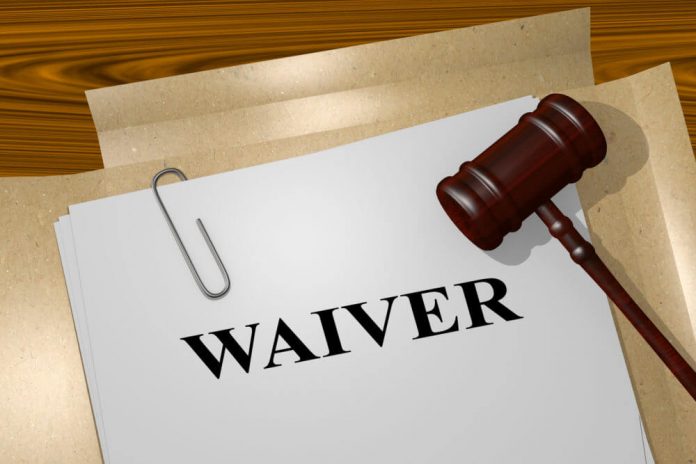This article is written by Najeeb Din pursuing a Diploma in Advanced Contract Drafting, Negotiation, and Dispute Resolution from Lawsikho.
Table of Contents
Introduction
By entering into a contract, both the parties undertake certain obligations with respect to their considerations. Consequently, both parties have to perform their part of the consideration for the contract to work successfully. In case any party under the contract does not perform its part of the consideration, it would amount to a breach of contract. However, there are certain instances where non-performance of the contract by a party would not amount to a breach of contract. Under the Indian Contract Act, 1872, the instances where a contract need not be performed are given in Sections 62-67. In this article, we would be focussing on Section 63 which talks about waiver of contract.
What is known as a waiver?
Waiver is an act by which a person knowingly relinquishes his right or claim to which he is entitled. Under the Contract Law, waiver is a method by which the promisee (person to whom a promise was made) with his free consent, extinguishes the obligations which are to be performed by the promisor (person who makes the promise). Section 63 of the Indian Contract Act states:
- Promisee may dispense with or remit performance of the promise.—Every promisee may dispense with or remit, wholly or in part, the performance of the promise made to him, or may extend the time for such performance, or may accept instead any satisfaction which he thinks fit.
Illustrations:
- A promises to paint a picture for B. B afterwards forbids him to do so. A is no longer bound to perform the promise.
- A owes B 5,000 rupees. A pays to B, and B accepts, in satisfaction of the whole debt, 2,000 rupees paid at the time and place at which the 5,000 rupees were payable. The whole debt is discharged.
- A owes B 5,000 rupees. C pays to B 1,000 rupees, and B accepts them, in satisfaction of his claim on A. This payment is a discharge of the whole claim.
- A owes B, under a contract, a sum of money, the amount of which has not been ascertained. A, without ascertaining the amount, gives to B, and B, in satisfaction thereof, accepts the sum of 2,000 rupees. This is a discharge of the whole debt, whatever may be its amount.
- A owes B 2,000 rupees and is also indebted to other creditors. A makes an arrangement with his creditors, including B, to pay them a [composition] of eight annas in the rupee upon their respective demands. Payment to B of 1,000 rupees is a discharge of B’s demand.
This section provides the promisee with the right to waiver. Under this section, a promisee may release the promisor from his performance either before or even after the breach of contract occurs due to the non-performance on the part of the promisor.
Remission or dispensing either in whole or in part
The promisee may:
- Waive the performance of the contract completely. The promisor now has no obligations with respect to the promise he had made to the promisee. The promise stands to be waived off in whole.
- Waive only a part or specific parts of the promise. The promisor now has to perform only the part/parts of the promise which are not waived by the promisee and is relinquished from fulfilling the parts which are waived off by the promisee.
Time extension
The promisee may extend the time for the performance of the promise. The time in which the promisor was supposed to fulfil the promise now stands void and the extended time frame now constitutes the duration of the promise. There is no need for an agreement to extend the time period of the promise. Consequently, there is no requirement of consideration to be in place for the time period to be extended by the promisee. However, it is to be kept in mind that there has to be consent from both parties so if the promisor feels that the extended time frame might hamper the performance of his promise, he may choose not to accept the extended time. This principle is explained by the Supreme Court in Keshavlal Lallubhai Patel v. Lalbhai Trikumlal Mills Ltd. where it was held that an extension of time for the performance of the contract under Section 63 of the Indian Contract Act must be based upon an agreement between the parties, and it would not be open to the promisee by his unilateral act to extend the time for performance of his own accord for his own benefit. Such an agreement need not necessarily be reduced to writing and can be proved by oral evidence or by evidence of conduct.
No consideration is required for waiver
There is no consideration required for the performance to be remitted. The waiver does not depend upon any consideration or reciprocal consideration for the promisor to be relieved of his performance. The Supreme Court held in Waman Shriniwas Kini v. Ratilal Bhagwandas and Co. that waiver is the abandonment of a right which normally everybody is at liberty to waive. However, the absence of consideration does not mean the absence of intention. The promisor should have the complete knowledge and intention of waiving his right to a claim which the promisor is entitled to perform. It is just that the right of waiver should exist with the promisee at the time of waving his claim.
The law with regard to waiver in India is very different from the law in England. In England, the waiver is contractual and there must be an agreement to waive either supported by consideration or it must be by contract under seal.
A waiver can be expressed or implied
There is no new written agreement that is required to be entered into for the discharge of performance of the promisor. The waiver of performance can be conveyed either orally or in an implied manner from the conduct of the promisee. Waiver in an implied manner should be by such conduct or a positive act done towards waiving off the promisor from his obligations. Generally, mere silence is not considered a waiver of contract.
Acceptance of reduced amount or performance
As seen in illustration (b) above, when discharge of whole debt is given on a reduced payment of the amount, it is a valid satisfaction of the debt and the debt stands discharged. In Hari Chand Madan Gopal And Others vs State of Punjab, the Supreme Court held that the Government had decided to recover only 40% and no more. The Government’s decision would amount to remitting a part of the debt due by the appellants. Therefore, the government cannot ask to recover more than 40%.
Even if there is a performance apart from repayment of the debt, the promisee may accept a reduced performance of the promise by waiving off the actual performance which was required to be done by the promisor.
Reduced payment by the third party
As seen in illustration (c) above, when a third party makes payment or performance of the promise on behalf of the promisor, the promisee may remit the performance of the promisor. The payment or performance can either be done of the whole promised amount or if the promisee may deem fit, even a reduced amount or performance may satisfy the debt. The Supreme Court in Kapur Chand Godha vs Mir Nawab Himayat Ali Khan Azamjah stated that the promisee having accepted the payment in full satisfaction of his claim was not entitled to sue.
It is important to note that if acceptance is made under protest by the promisee regarding the reduced amount of performance, the promisor is liable to pay/ perform the promise and the amount/performance does not stand waived off.
Principle of accord and satisfaction
If the promisor is not able to perform his part of the promise and a breach has occurred, the parties can enter into an agreement whereby the promisee accepts some consideration apart from the legal remedy available to him. Thus, when the promisor performs his obligations with respect to the new agreement, he is discharged from the liability arising out of the breach of the previous contract. This discharge is done by accord and satisfaction between the two parties. This principle is applicable in Section 63 since, by accord and satisfaction, the promisee waives off his claim arising out of the original contract.
Revocation of waiver
The Court of Appeals stated that the party who has waived compliance with a particular requirement may in circumstances and by giving reasonable notice withdraw his waiver. However, such notice should be given such that the promisor has a reasonable opportunity to satisfy the requirement which was waived off by the promisor. If it is too late or unreasonable, the waiver cannot be revoked and the parties are bound to the waiver.
Waiver clause in a contract
It is advised to have a waiver clause in the contract itself. The waiver clause may include additional details with respect to waiver like, “waiver shall not be inferred simply from failure to insist on performance” or “waiver shall be done in a written manner”. The waiver clause cannot state anything contradictory to what is provided by the law in Section 63 of the Indian Contract Act.
Conclusion
The waiver is a concept that is ignored many times in the boilerplate clauses of a contract but it can cause a major effect on the contract. Section 63 of the Indian Contract Act has developed through judicial pronouncement to provide a comprehensive meaning of waiver of contract. Hence, we deduce that waiver is the way by which a promisee remits the performance of the promisor either in whole or in part or may provide for the time extension. This can either be conveyed expressly or in an implied manner. Under Indian laws, there is no need for any agreement or consideration for waiver unlike what we see in English law. Thus, it is important to cautiously draft the waiver clause in an agreement as it may cause a lot of loss if there are any loopholes in the clause.
References
- Contract and Specific Relief- Avatar Singh
- MULLA- The Indian Contract Act
- Phoenix Mills Ltd. vs M.H. Dinshaw And Co. (1946) 48 BOMLR 313
- https://acumenjuris.com/article-single.php?id=35
Students of Lawsikho courses regularly produce writing assignments and work on practical exercises as a part of their coursework and develop themselves in real-life practical skills.
LawSikho has created a telegram group for exchanging legal knowledge, referrals, and various opportunities. You can click on this link and join:
 Serato DJ Crack 2025Serato DJ PRO Crack
Serato DJ Crack 2025Serato DJ PRO Crack











 Allow notifications
Allow notifications


